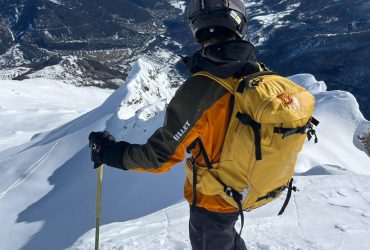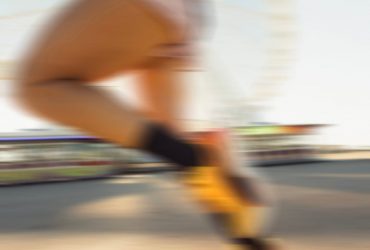Fully recyclable gloves, shoes made from plastic waste, surfboards made from recycled fishing nets... Here are five products for outdoor sports that are more respectful of the environment and that do not make concessions on their technical qualities.
Mountain bike shoes made from plastic waste
Since 2015, Adidas has been working with environmental NGO Parley. This partnership aims to manufacture shoes using ocean plastic waste collected by the NGO. The brand with the three stripes is even aiming for 100% recycled polyester production by 2024. With this in mind, FiveTen (owned by Adidas) recently unveiled mountain bike shoes made using this process. After waste has been collected and sorted, it is shredded and melted. The polyester is then mixed with other materials and released in the form of yarn, which is used to manufacture the Freerider and Freerider Pro models (the latter featuring a reinforced structure for more committed mountain biking).
Cork gloves and easy to recycle
These Eco20 Active gloves, designed in partnership between the brands Bleed and Zanier, were awarded an environmental prize at the last ISPO in Munich, Europe's largest outdoor trade fair. Instead of leather, cork was chosen for the palm reinforcement. The lining is made of Polartec and recycled Sympatex laminate (treated with a fluorine-free water repellent) is used as the shell. Fully recyclable, these gloves are light, windproof and waterproof.
Salomon's 100% recyclable running gear
September 2020, Solomon has struck a blow by announcing the upcoming launch of its Index.01. This high-performance running shoe weighing only 285 grams is entirely recyclable. After three years of research and development at Salomon's Annecy Design Center, this model (which will be marketed this spring) has achieved the feat of 100% recyclable thanks to the upper made of recycled polyester, and a thermoplastic polyurethane sole. Once your pair has reached the end of its life, you have to remove the inner sole to separate the upper from the sole block and start the recycling process. The sole block is then shredded into small pieces, mixed with new TPU and used in the manufacture of alpine ski boots and other Salomon products. The polyester upper will also be used to create new materials. The user simply goes to the Salomon website and prints a shipping label to return the boots to the nearest collection centre free of charge.
Surfboards from Gironde awarded "ecoboard" label
Born in 2017 under the impetus of three surfers from Gironde Nicolas, Basile and Thomas, Nomads Surfing is a brand that offers eco-responsible surfboards. Unlike conventional boards, whose resin and fiber-based construction makes them difficult to recycle, Nomads Surfing boards are made from 100% recyclable and already partially recycled polystyrene foam (a bio-sourced resin prepared from plant resources). In addition to the board, the pad (the non-slip part of the board) is made from natural 100% cork. Finally, following the success of a participatory funding campaign in 2020, the company was able to develop its plastic daggerboards made in France from recycled fishing nets. The boards come from a Portuguese company, while 80% classic boards are produced in Asia. Nomads Surfing has been awarded the "ecoboard" label, which certifies the product as being more respectful of the environment. Last but not least, 5% of the company's profits are donated to three partner associations (Project Rescue Ocean in France, The Coral Triangle conservancy in the Philippines and EcoKnights in Malaysia).
Patagonia's recycled jackets and fleeces
When American Yvon Chouinard founded Chouinard Equipment (which three years later became Patagonia) in 1970, the entrepreneur made environmental issues a central part of his company. It was a pioneering company in this field, Patagonia continues this vision 50 years later, with products made from recycled materials such as 100% recycled polyester jackets and fleeces made from recycled cotton. By 2025, the brand hopes to use 100% renewable or recycled materials. Every year since 1986, Patagonia has donated at least 1% of its sales to the preservation and restoration of the natural environment. In all, $100 million has been donated to various local organizations.










